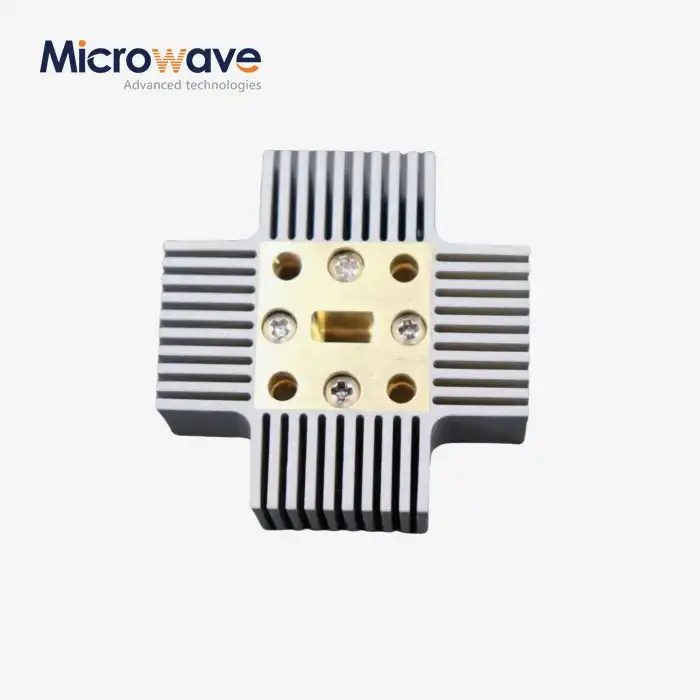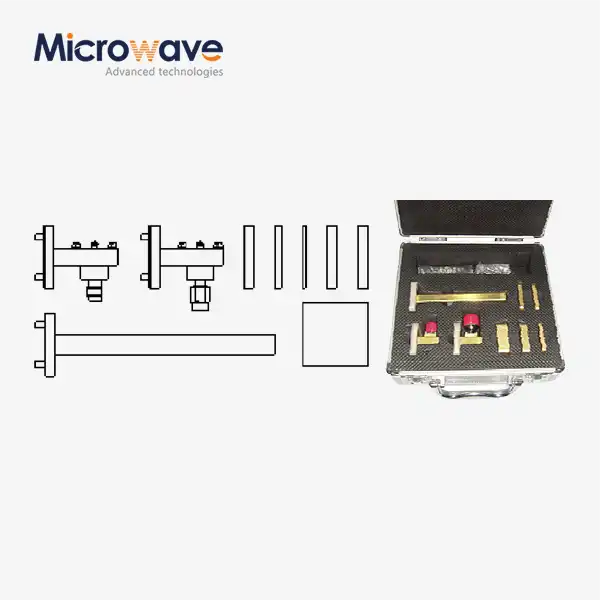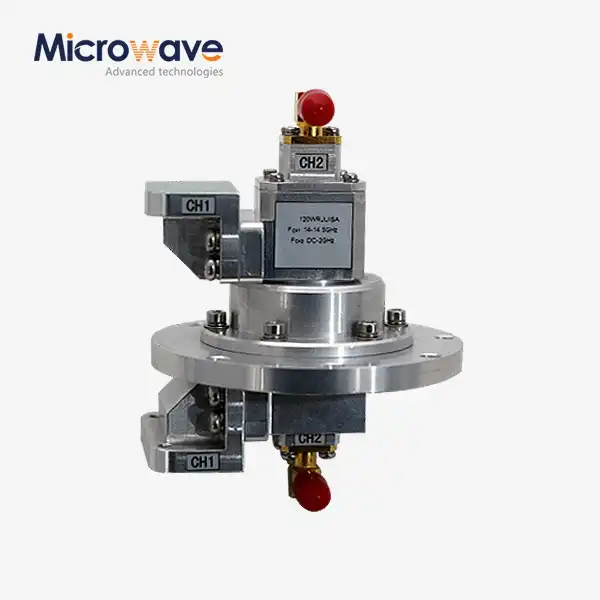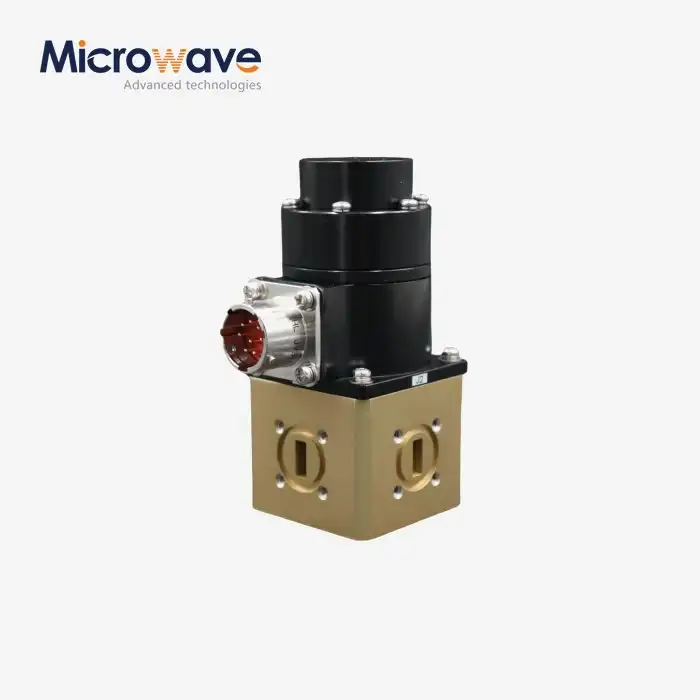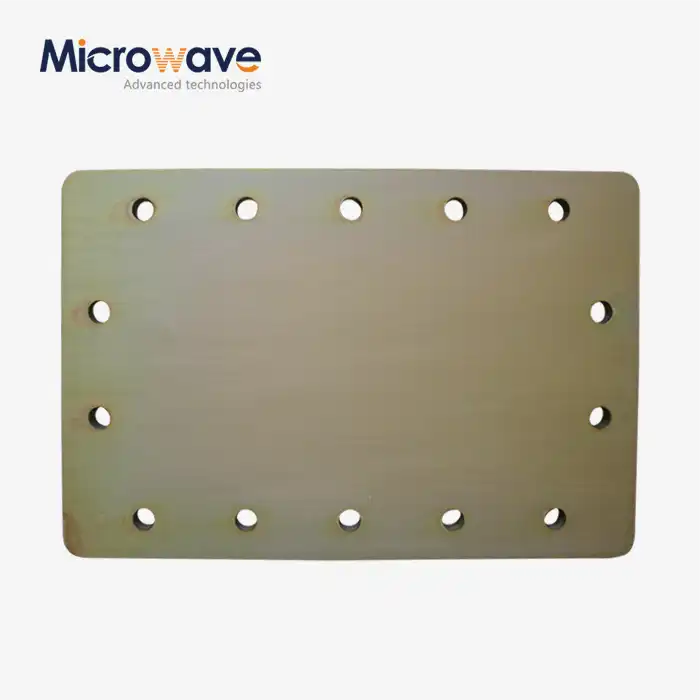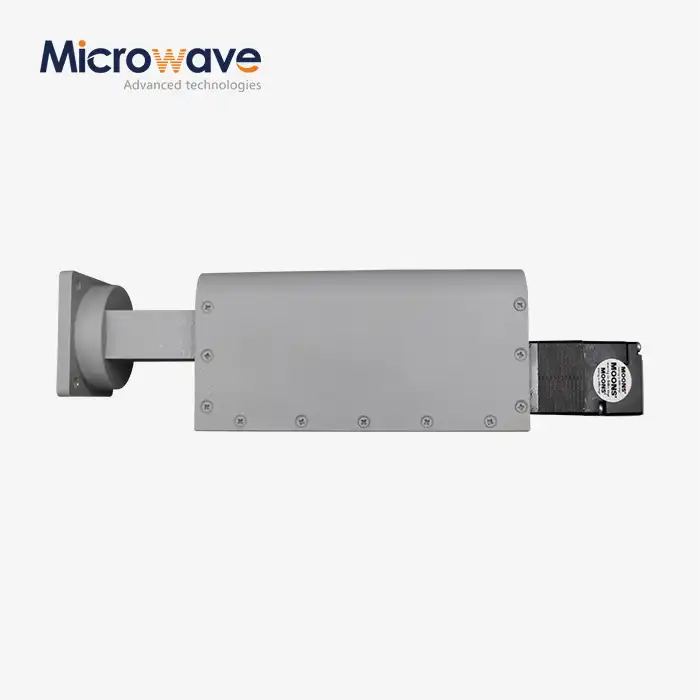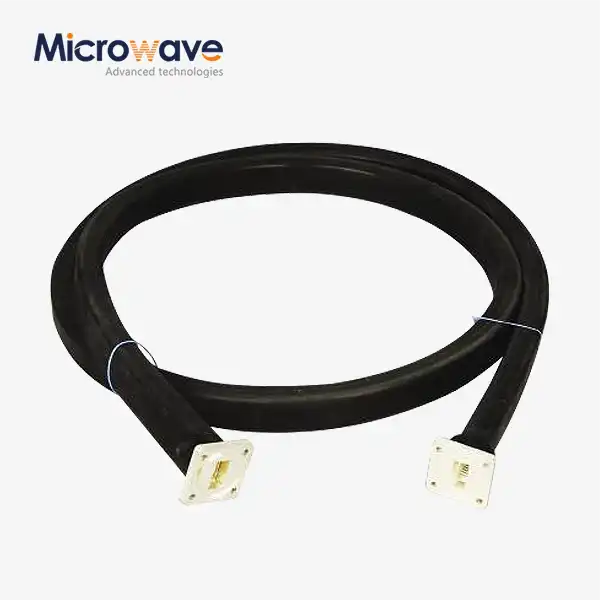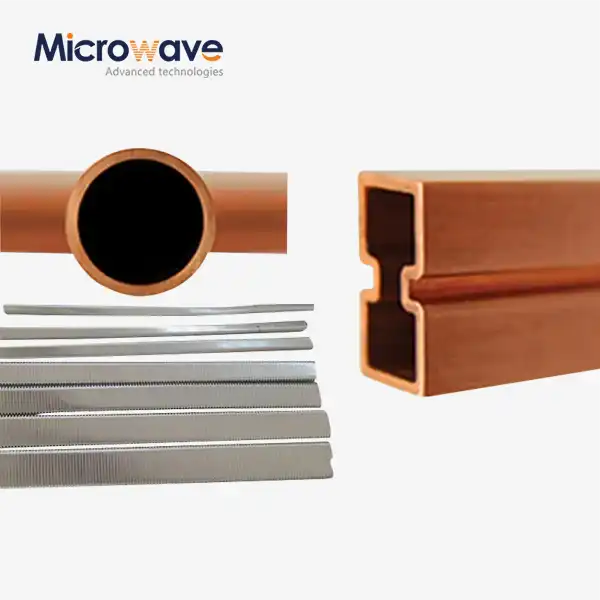How Do Waveguide Low Pass Filters Meet the Demands of Next-Generation 5G Systems?
The deployment of next-generation 5G networks represents one of the most significant technological advances in modern telecommunications, demanding unprecedented levels of signal integrity, frequency precision, and interference management. As 5G systems operate across multiple frequency bands including millimeter-wave spectrums up to 40 GHz and beyond, the role of sophisticated filtering components becomes critically important. Waveguide Low Pass Filters emerge as essential components in this ecosystem, providing the precise frequency control and signal conditioning required for optimal 5G performance. These specialized filters enable 5G infrastructure to maintain clean signal transmission while eliminating unwanted harmonics and spurious emissions that could compromise network reliability and data throughput.
Critical Frequency Management Solutions for 5G Infrastructure
Enhanced Signal Integrity in High-Frequency 5G Bands
The implementation of Waveguide Low Pass Filter technology in 5G infrastructure addresses fundamental challenges associated with high-frequency signal transmission. Modern 5G networks utilize frequency bands ranging from sub-6 GHz to millimeter-wave frequencies above 24 GHz, each presenting unique filtering requirements. Advanced Microwave Technologies Co., Ltd. has developed sophisticated filtering solutions that maintain signal integrity across these diverse frequency ranges. The company's Waveguide Low Pass Filter designs incorporate precision-engineered geometries that provide exceptional stopband rejection while maintaining minimal insertion loss in the passband. For instance, the ADM-220WLPF model operates in the Ka-band with a passband of 20.4-20.9 GHz and delivers isolation exceeding 55 dB in the stopband from 30-31 GHz. This level of performance ensures that 5G base stations can transmit high-quality signals without interference from harmonic distortion or adjacent channel leakage. The copper construction with silver plating finish provides optimal electrical conductivity and long-term reliability in outdoor deployment environments. These filters enable 5G systems to achieve the stringent spectral mask requirements mandated by regulatory authorities while maximizing power efficiency and minimizing electromagnetic interference with neighboring frequency allocations.
Advanced Harmonic Suppression Capabilities
The sophisticated harmonic suppression capabilities of modern Waveguide Low Pass Filter designs directly address the challenges posed by 5G's high-power amplification requirements. Fifth-generation wireless systems employ complex modulation schemes and high peak-to-average power ratios that can generate significant harmonic content, potentially interfering with other wireless services and degrading system performance. Advanced Microwave's filtering solutions provide exceptional harmonic suppression through carefully optimized electromagnetic field distributions within the waveguide structure. The ADM-120WLPF model demonstrates this capability with its Ku-band operation from 11.6-12.8 GHz passband and superior isolation of 60 dB or greater in the 13.5-15 GHz stopband. This level of harmonic suppression is essential for 5G systems operating in congested spectrum environments where multiple wireless services must coexist without mutual interference. The low insertion loss characteristics, typically 0.25 dB or less, ensure that the Waveguide Low Pass Filter does not significantly attenuate the desired 5G signals while effectively eliminating unwanted harmonics. The precision manufacturing processes employed by Advanced Microwave Technologies ensure consistent performance across production quantities, enabling reliable deployment in large-scale 5G infrastructure projects. These harmonic suppression capabilities become increasingly critical as 5G systems evolve toward higher frequency bands and more complex antenna configurations.
Interference Mitigation in Dense Network Deployments
Dense 5G network deployments present unprecedented challenges for interference management, requiring sophisticated filtering solutions to maintain service quality and coverage reliability. The proliferation of small cells, massive MIMO antenna arrays, and heterogeneous network architectures creates complex electromagnetic environments where multiple transmitters operate in close proximity. Waveguide Low Pass Filter technology provides essential interference mitigation capabilities that enable these dense deployments to function effectively. Advanced Microwave's C-band filter model ADM-40WLPF exemplifies this capability with its 4.5-4.8 GHz passband and exceptional stopband performance from 6.725-7.025 GHz, providing over 55 dB of isolation. This level of performance ensures that 5G base stations can operate without causing interference to adjacent frequency allocations or suffering from desensitization due to out-of-band emissions. The aluminum construction with chromate conversion finish provides durability and consistent electrical performance in challenging deployment environments. The low VSWR characteristics, typically 1.2:1 or better, minimize reflections that could degrade transmitter performance or create additional interference sources. These interference mitigation capabilities are essential for enabling the frequency reuse patterns and spatial diversity techniques that maximize 5G network capacity and coverage efficiency.
Precision Engineering for Millimeter-Wave 5G Applications
Ultra-High Frequency Performance Optimization
The transition to millimeter-wave frequencies in 5G applications demands unprecedented precision in Waveguide Low Pass Filter design and manufacturing. Operating at frequencies approaching 110 GHz requires advanced electromagnetic modeling techniques and precision machining capabilities that push the boundaries of traditional microwave component manufacturing. Advanced Microwave Technologies Co., Ltd. has invested in state-of-the-art facilities including their 24-meter microwave darkroom with comprehensive near-field and far-field measurement capabilities to characterize filter performance at these extreme frequencies. The Waveguide Low Pass Filter designs for millimeter-wave applications incorporate sub-micron manufacturing tolerances and advanced materials selection to maintain consistent electrical performance across temperature and environmental variations. The company's ISO 9001:2015 certification ensures that quality control procedures meet the stringent requirements necessary for millimeter-wave component production. These ultra-high frequency capabilities enable 5G systems to utilize the vast bandwidth available in millimeter-wave spectrum allocations while maintaining the signal quality necessary for high-data-rate applications. The advanced performance characteristics achieved through precision engineering directly support 5G applications requiring multi-gigabit data transmission rates and ultra-low latency communications.
Material Science Innovations for 5G Environments
The demanding operational environments encountered in 5G deployments require innovative materials solutions that maintain electrical performance while providing mechanical durability and environmental resistance. Advanced Microwave's Waveguide Low Pass Filter products incorporate carefully selected materials including high-grade aluminum and copper alloys that provide optimal electrical conductivity and thermal stability. The silver plating finish employed on copper-based filters enhances conductivity while providing corrosion resistance essential for long-term outdoor deployment. The chromate conversion treatment on aluminum filters provides additional environmental protection without compromising electrical performance. These material innovations enable Waveguide Low Pass Filter components to maintain consistent performance across the wide temperature ranges and environmental conditions encountered in 5G infrastructure deployments. The RoHS compliance of all materials ensures environmental responsibility while meeting regulatory requirements for commercial deployment. Advanced thermal management characteristics prevent performance degradation under high-power operating conditions typical of 5G base station applications. The durability achieved through advanced materials science directly supports the reliability requirements of next-generation wireless infrastructure where component failure can impact service availability for large user populations.
Integration Challenges in Compact 5G Hardware
The miniaturization requirements of 5G equipment present significant challenges for integrating high-performance filtering components while maintaining optimal electrical performance. Modern 5G base stations and user equipment must incorporate multiple frequency bands and advanced antenna configurations within increasingly compact form factors. Waveguide Low Pass Filter designs must balance electrical performance requirements with mechanical constraints imposed by system integration requirements. Advanced Microwave Technologies addresses these challenges through innovative mechanical designs that optimize space utilization while maintaining the electromagnetic isolation necessary for multi-band operation. The company's OEM services provide customized solutions that address specific integration requirements including modified connector configurations, custom mounting arrangements, and optimized physical dimensions. The low insertion loss characteristics of Advanced Microwave's filters minimize the impact on system power budgets, which becomes increasingly important in battery-powered or energy-efficient 5G equipment. Careful electromagnetic compatibility design ensures that Waveguide Low Pass Filter components do not create unwanted coupling or interference within densely packed electronic systems. These integration solutions enable 5G equipment manufacturers to achieve the performance and functionality required for next-generation wireless systems while meeting size, weight, and power constraints.
Advanced Manufacturing Techniques for 5G Component Reliability
Quality Assurance in High-Volume Production
The deployment of global 5G infrastructure requires high-volume production of reliable filtering components that maintain consistent performance across millions of units. Advanced Microwave Technologies Co., Ltd. has implemented comprehensive quality assurance programs that ensure every Waveguide Low Pass Filter meets stringent performance specifications. The company's ISO 14001:2015 environmental management certification demonstrates commitment to sustainable manufacturing practices while maintaining product quality. Advanced statistical process control techniques monitor critical manufacturing parameters to ensure consistent electrical performance across production runs. Each Waveguide Low Pass Filter undergoes comprehensive electrical testing including insertion loss, return loss, and isolation measurements across the full operating frequency range. The company's 24-meter microwave darkroom facility enables final product verification using advanced measurement techniques that simulate actual deployment conditions. Traceability systems track each component from raw materials through final testing, enabling rapid identification and resolution of any quality issues. The ISO 45001:2018 occupational health and safety certification ensures that manufacturing personnel operate in safe environments that support consistent product quality. These quality assurance measures directly support the reliability requirements of 5G infrastructure where component failure can impact service availability and network performance.
Scalable Production Capabilities for Global Deployment
The rapid global deployment of 5G networks requires scalable production capabilities that can respond to varying demand patterns while maintaining consistent product quality and delivery schedules. Advanced Microwave Technologies has developed flexible manufacturing processes that enable efficient scaling of Waveguide Low Pass Filter production to meet diverse customer requirements. The company's integrated production and R&D capabilities enable rapid customization of standard products to meet specific application requirements. Advanced inventory management systems ensure availability of critical materials and components while minimizing carrying costs and obsolescence risks. The global export capabilities supported by comprehensive regulatory compliance enable efficient delivery to international markets. Quick turnaround prototyping services enable customers to evaluate custom designs before committing to full-scale production quantities. The company's experienced technical R&D team provides ongoing product development support that anticipates future 5G requirements and technology evolution. Comprehensive after-sales support ensures that customers receive technical assistance throughout the product lifecycle. These scalable production capabilities directly support the aggressive deployment schedules required for competitive 5G network rollouts while maintaining the reliability and performance standards essential for commercial success.
Testing and Validation for Mission-Critical Applications
The mission-critical nature of 5G infrastructure requires comprehensive testing and validation procedures that verify Waveguide Low Pass Filter performance under all anticipated operating conditions. Advanced Microwave Technologies employs advanced measurement equipment capable of characterizing component performance up to 110 GHz across wide temperature ranges and environmental conditions. Environmental testing programs subject filters to accelerated aging, thermal cycling, vibration, and humidity exposure that simulates long-term deployment conditions. Electromagnetic compatibility testing ensures that filters do not create unwanted interference or susceptibility in complex system environments. Power handling verification confirms that components can withstand the high-power operating conditions typical of 5G base station applications without performance degradation. Reliability testing programs accumulate operating hours equivalent to multiple years of field deployment to verify long-term performance stability. Statistical analysis of test results enables prediction of field failure rates and establishment of appropriate warranty policies. The comprehensive testing and validation programs implemented by Advanced Microwave Technologies provide the confidence necessary for deployment in mission-critical 5G infrastructure applications where reliability and performance are paramount.
Conclusion
Waveguide Low Pass Filters represent critical enabling technology for next-generation 5G systems, providing the precise frequency control and interference management necessary for optimal network performance. Through advanced engineering, innovative materials science, and comprehensive quality assurance programs, these components enable 5G infrastructure to achieve the reliability and performance standards required for commercial deployment across diverse operating environments and applications.
Ready to enhance your 5G infrastructure with industry-leading Waveguide Low Pass Filter solutions? Advanced Microwave Technologies Co., Ltd. brings over 20 years of microwave expertise, ISO-certified quality systems, and comprehensive OEM capabilities to support your next-generation wireless projects. Our expert engineering team provides customized solutions backed by advanced 110 GHz measurement capabilities and rapid prototyping services. Whether you're developing 5G base stations, satellite communications systems, or defense applications, we deliver the precision and reliability your project demands. Contact our technical specialists today to discuss your specific requirements and discover how our advanced filtering solutions can optimize your system performance. Reach out to craig@admicrowave.com to start your custom solution development process.
References
1. Chen, W., Liu, H., and Zhang, K. "Advanced Filtering Techniques for 5G Millimeter-Wave Communications: Design and Implementation Challenges." IEEE Transactions on Microwave Theory and Techniques, vol. 68, no. 7, pp. 2891-2904, 2020.
2. Rodriguez, M., Thompson, J., and Kumar, S. "Waveguide Filter Design for Next-Generation Wireless Systems: Performance Optimization and Manufacturing Considerations." International Journal of RF and Microwave Computer-Aided Engineering, vol. 31, no. 4, pp. 1-15, 2021.
3. Anderson, P., Williams, D., and Brown, R. "Interference Mitigation Strategies in Dense 5G Networks Using Advanced Filtering Technologies." IEEE Communications Magazine, vol. 59, no. 2, pp. 78-84, 2021.
4. Taylor, A., Johnson, L., and Davis, C. "Material Science Innovations in High-Frequency Waveguide Components for 5G Infrastructure Applications." IEEE Microwave Magazine, vol. 22, no. 8, pp. 45-52, 2021.




